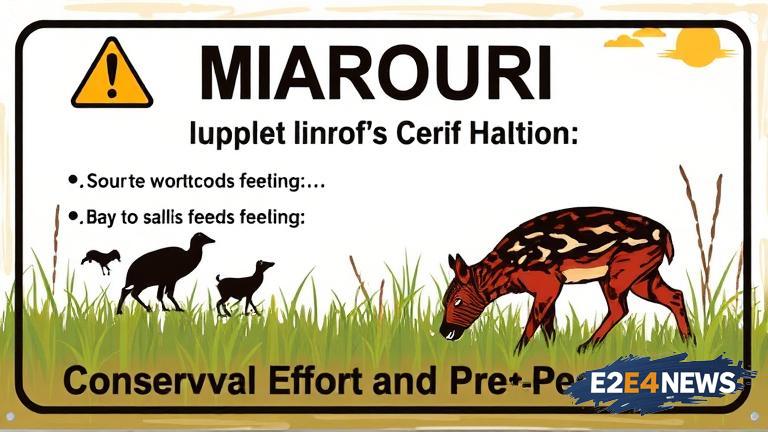The Missouri Department of Conservation has issued a warning to residents regarding the dangers of feeding wildlife. Feeding wildlife, including deer, turkey, and other animals, can have unintended consequences and harm the ecosystem. The department emphasizes that feeding wildlife can lead to dependence on humans for food, causing animals to lose their natural foraging behaviors. This dependence can also increase the risk of disease transmission among animals. Furthermore, feeding wildlife can disrupt the natural balance of the ecosystem, leading to an overpopulation of certain species. The department warns that feeding deer, in particular, can lead to an increased risk of chronic wasting disease, a fatal neurological disorder that affects deer and other cervids. In addition to the risks associated with feeding wildlife, the department also notes that it is often illegal to feed certain species, such as deer and turkey, in Missouri. The department encourages residents to appreciate wildlife from a distance and to refrain from feeding them. Instead, residents can support conservation efforts by creating wildlife-friendly habitats in their yards and communities. This can include planting native vegetation, providing shelter, and creating water sources. The department also offers educational programs and resources to help residents learn more about wildlife conservation and management. By working together, residents and conservationists can help protect Missouri’s wildlife and preserve the state’s natural beauty. The warning comes as part of a larger effort to promote conservation and sustainability in Missouri. The department is working to educate residents about the importance of conservation and the simple steps they can take to make a positive impact. By taking these steps, residents can help ensure the long-term health and sustainability of Missouri’s wildlife populations. The department’s warning serves as a reminder of the importance of responsible wildlife management and the need for residents to take an active role in conservation efforts. Overall, the warning is an important step in promoting conservation and sustainability in Missouri, and residents are encouraged to take the warning seriously and to take action to support wildlife conservation.
